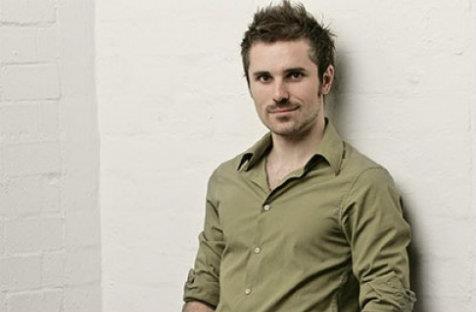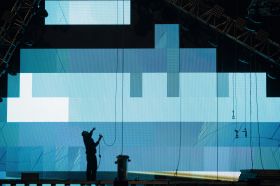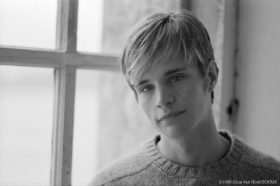In a program well suited to a Proms concert, the Melbourne Symphony Orchestra performed the work of popular Russian composers. As well as the title work, Rachmaninov’s Third Concerto, there were two favourites by Tchaikovsky: an overture for Romeo and Juliet and selections from the ballet, Swan Lake.
The Concerto is popularly known as the Rach.3, thanks largely to its importance in the film, Shine, as a formidable work whose difficulty drove the young pianist David Helfgott over the brink of madness. While that might be contested, the technical – and emotional – demands of the Rach.3 are evident, particularly when seen in live performance.
Clemens Leske fortunately showed no signs of being driven crazy by the score before him; in fact, he appeared to revel in the challenge (even opting to play the longer, more demanding cadenza of the opening movement than taking the easier way out with Rachmaninov’s alternative).
Scoring for the orchestra is similarly intricate, so that lush strings and a powerful tutti sound always carried the possibility of overwhelming the piano. But not in Leske’s hands. The pianist took command from the opening, deceptively simple bars and within minutes was in partnership with the mass of sound that would be his constant companion throughout the work.
It would be difficult to say which was most impressive: this blending with the orchestra, the technical tour de force the work requires, or the lyrical Romanticism that surfaces throughout. Leske excelled at all, even as his face mirrored the great physical strain he was under. (Perhaps Shine was not such an exaggeration after all!).
It will be evident from the above that the MSO also had its challenges, but the orchestra was in good hands with Paul Fitzsimon. The conductor both steered the work through its more fiendish passages and allowed its lovely contrasts to be heard. My only question is why, with the piano literally on centre stage, the rostrum was positioned so that Fitzsimon could not see the pianist, leading to a few tiny moments when soloist and orchestra seemed out of sync. (However, quick reference to more than one YouTube video shows this to be usual with this particular concerto, perhaps in deference to the central importance of the solo instrument in the Rach.3).
After interval, the orchestra had the chance to shine in its own right – and it did. Romeo and Juliet – Fantasy Overture after Shakespeare begins with lower strings and a minor key that presage the tragedy to come. Soon, however, there’s the well known ‘love theme’, soberly but beautifully introduced by the winds.
Fitzsimon’s sensitive conducting allowed the audience to recall and visualise the story of the star-crossed lovers, with moments of elegiac calm contrasting with flight and conflict expressed through fast-paced, syncopated strings and percussion. The recurrence of the main theme gave a sense of unity to the piece, with a satisfyingly full orchestral sound near the end of the piece.
If Tchaikovsky’s Romeo and Juliet is familiar, Swan Lake is even more so. I was to see the Australian Ballet’s production of Graeme Murphy’s Swan Lake the following day, but appreciated hearing the music for its own sake here. The enchanted swans, evil magicians and storms as in the traditional staging of the ballet were evoked by the music, as Tchaikovsky intended.
The excerpts being from scenes 28 and 29 in Acts III and IV indicate the length of the traditional ballet. The last takes place by the lake, with the central focus on Prince Siegfried and the swan-princess Odette. The music is unashamedly romantic, and the MSO revelled in playing it with a final burst of the energy and passion that had characterised the whole night’s performance.
And the orchestra yet again demonstrated how much it relishes a big crescendo!
Rating: 4 stars out of 5
Rachmaninov’s Third Concerto
Melbourne Symphony Orchestra
Paul Fitzsimon – conductor
Clemens Leske – piano
Rachmaninov – Piano Concerto No.3
Tchaikovsky – Romeo and Juliet
Tchaikovsky – Swan Lake: Suite
Melbourne Town Hall
21 June





